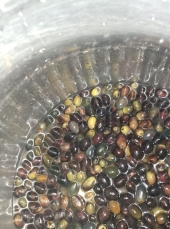








"Study books and observe nature; if they do not agree, throw away the books." ~ William A. Albrecht




Check out Redhawk's soil series: https://permies.com/wiki/redhawk-soil




... it´s about time to get a signature ...




 2
2




soloenespana.wordpress.com




Check out Redhawk's soil series: https://permies.com/wiki/redhawk-soil




... it´s about time to get a signature ...




With forty shades of green, it's hard to be blue.
Garg 'nuair dhùisgear! Virtutis Gloria Merces
 1
1




Check out Redhawk's soil series: https://permies.com/wiki/redhawk-soil




soloenespana.wordpress.com




John Saltveit wrote:My medical guy agrees with what Dawn said. Especially prebiotic vegies: celery, leeks, dandelions, jerusalem artichoke/sunchoke, jicama, chicory, etc. Keep the varieties changing every few days.
John S
PDX OR




Check out Redhawk's soil series: https://permies.com/wiki/redhawk-soil




John Saltveit wrote:Beans and whole grains also fit in. My only impression is that they tend to be the opposite of berries. Instead of tart, flavorful, and full of flavor and anti-oxidants, they seem to be fibrous, starchy, and rather devoid of flavor. Your stomach doesn't digest them, your colon does, so they're not for flavor.
John S
PDX OR




Check out Redhawk's soil series: https://permies.com/wiki/redhawk-soil




Invasive plants are Earth's way of insisting we notice her medicines. Stephen Herrod Buhner
Everyone learns what works by learning what doesn't work. Stephen Herrod Buhner




Check out Redhawk's soil series: https://permies.com/wiki/redhawk-soil

|
What do you have in that there bucket? It wouldn't be a tiny ad by any chance ...
A rocket mass heater heats your home with one tenth the wood of a conventional wood stove
http://woodheat.net
|

